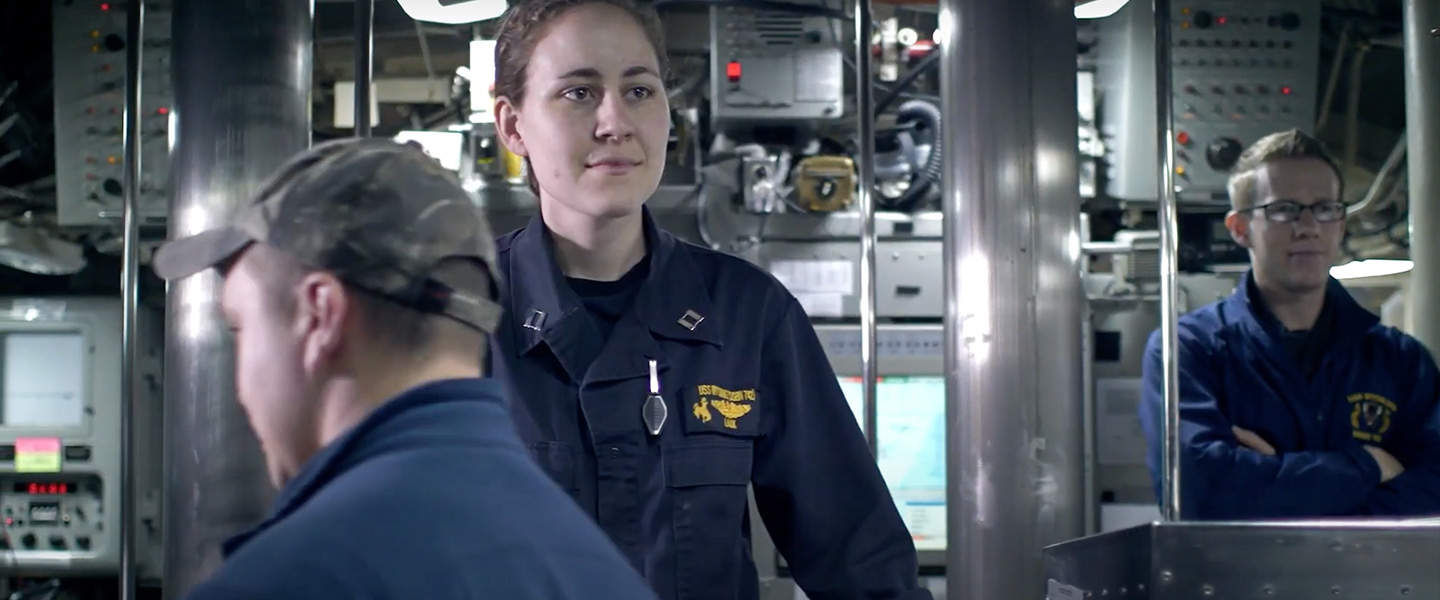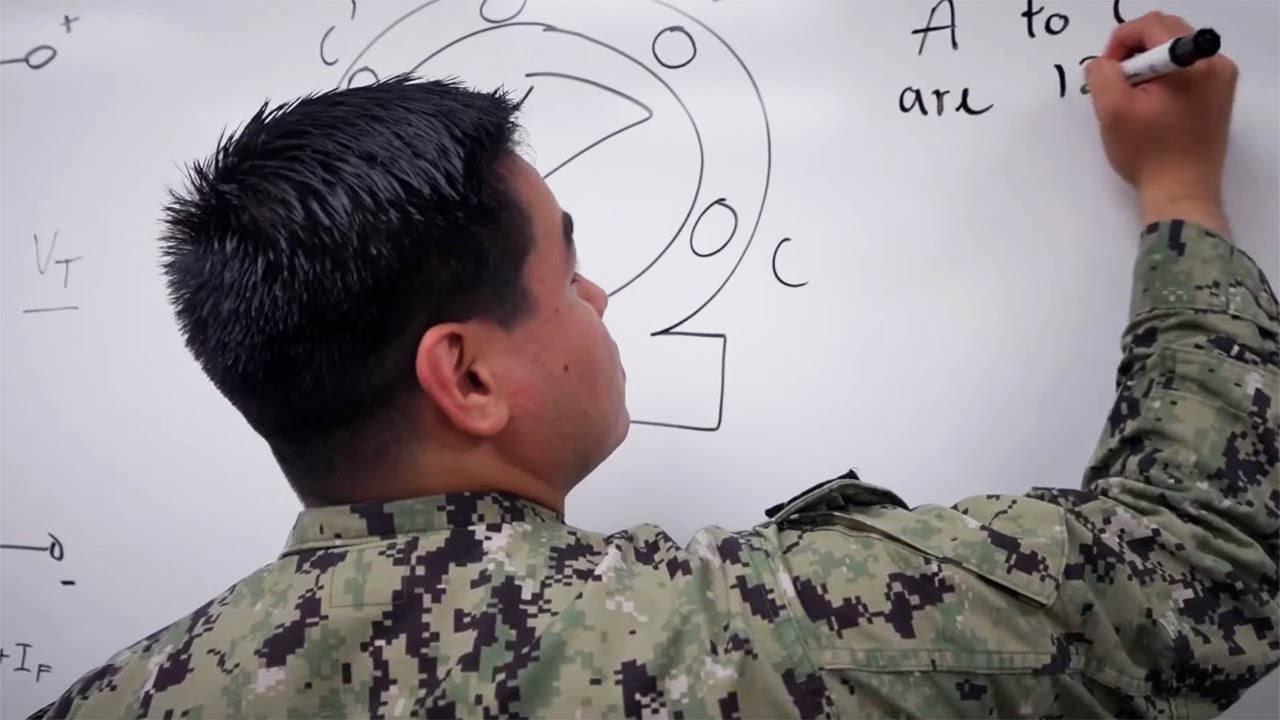What to Expect
More Information
Responsibilities
Nuclear Power Training Unit Instructors provide hands-on training and direct oversight to nuclear-trained Officers and Enlisted personnel while operating a nuclear reactor. They are essential in ensuring the safe operation of shore-based nuclear power plants and in preparing the Officers and Enlisted personnel for their future in the nuclear power field.
Naval Nuclear Power Training Unit is a 26-week course of instruction spent applying the knowledge of nuclear power plant operations in order to attain certification as a nuclear operator. Areas of instruction include:
- Reactor start-up, steady-state operations and shutdown
- Chemistry analysis and control
- Maintenance review and approval
- Casualty response
- Reactor safeguard systems
Work Environment
Serving at Naval Nuclear Power Training Unit (NPTU) in Charleston, SC, you’ll work in a unique environment combining classroom instruction and self-paced study with real-world operations. Much of your work will take place in the nuclear power plant of a moored submarine, providing valuable hands-on training.
You will study the same curriculum taught to the Submarine and Surface Warfare Officers and then go on to teach it, facilitating the same collaborative learning environment that you first experienced in your own training. This assignment requires dedicated leaders committed to the success of their students.
Training & Advancement
Upon graduation from college, the formal training process of becoming an officer in the Naval Nuclear Propulsion program is officially underway. For those pursuing a Nuclear Power Training Unit Instructor position, the first step is Officer Development School (ODS) in Newport, RI – a 5-week course of instruction in Newport, RI, that provides a comprehensive and intense introduction to the responsibilities of being a Naval Officer.
Upon completion of ODS, newly commissioned officers move on to receive the advanced training that is at the core of Navy Nuclear Propulsion, starting with Naval Nuclear Power School (NNPS) in Charleston, SC. This 24-week graduate-level course of intensive study covers a variety of science and technology-based subjects, from calculus to thermodynamics to electrical engineering to reactor dynamics. NNPS provides the foundation of knowledge necessary for a theoretical understanding of nuclear propulsion.
From there, Nuclear Power Training Unit Instructors attend additional training at their ultimate duty station, Nuclear Power Training Unit (NPTU), often referred to as Prototype, in Charleston, SC. This 26-week course involves hands-on training with several operational reactor prototypes. Here, officers apply the concepts learned at Nuclear Power School – studying systems and components of a nuclear propulsion plant and working with all the associated systems of a full-scale operating plant. The training culminates with qualification as Engineering Officer of the Watch.
Upon completion of training at NPTU, the student becomes the teacher. Nuclear Power Training Unit Instructors then take the lead, working closely with both officer and enlisted personnel.
As an NPTU Instructor, you will also earn eventual qualification as Prospective Nuclear Engineering Officer (PNEO) – a Department of Energy certification recognized by the civilian nuclear power industry and an impressive item for your résumé following your time in the Navy.
Promotion opportunities are regularly available during the first years of service. For example, NPTU Instructors can go onto qualify as a Shift Engineer – a Senior Officer responsible for leading over 60 Navy and civilian personnel – which comes with an additional stipend of $500/month.
It's also important to note that specialized training received and work experience gained in the course of service can lead to valuable credentialing and occupational opportunities in related fields.
Post-Service Opportunities
As an NPTU Instructor, you will have incredible post-service prospects. The highly-selective nature of the program combined with world-class advanced training and qualifications means your skills and knowledge are in high demand. Adding "Navy Nuclear Officer" to your list of accomplishments will make you a top candidate for a variety of future careers including civilian engineering and management jobs after you complete your service.
Education Opportunities
In addition to the best-in-class training and state-of-the-art facilities, current undergrad students who meet the prerequisite background will also get the chance to get paid while finishing school through the Nuclear Propulsion Officer Candidate (NUPOC) program. Students in majors like mathematics, engineering, physics and chemistry may receive preferred acceptance into the program.
If accepted into the NUPOC program as an aspiring Naval Nuclear Power Training Unit Instructor, you can:
- Receive a salary in excess of $4,000 per month for up to 30 months prior to your college graduation
- Receive an immediate one-time sign-on bonus of $15,000
- Enjoy military healthcare benefits while you are a student in the program
- Have your college years enrolled in the program count towards retirement
- Be a full-time student with no military duties while in college
Interested candidates should connect with a recruiter and ask about joining an instructor-specific Q&A information session. This will allow you to ask any questions you have and learn more about what the job entails.
Postgraduate Education Opportunities
As an NPTU Instructor, once you’re out of school you’ll have a position waiting as a respected professional and officer affiliated with the most accomplished nuclear program on earth. Beyond undergraduate and formal Navy training and education, you can pursue additional graduate education by:
- Completing Joint Professional Military Education (JPME) at one of the various service colleges
- Using Tuition Assistance to attend online or in-person graduate programs
- Navy College Program
- VOLED Assistance Center
- VOLED Region Advisors
- The Naval Postgraduate School (NPS)
- Navy War College (NWC)
- USAF Air University Air Command and Staff College
Qualifications & Requirements
Because of the demanding nature of Naval Nuclear Propulsion Program and the magnitude of the responsibilities members will take on from a young age, requirements to become a candidate and join NUPOC are stringent.
The NUPOC program is open to both men and women. The following program qualification criteria apply.
To be an eligible candidate, you must:
- Be a U.S. citizen (dual citizens must renounce non-US citizenship)
- Be at least 19 years of age and less than 29 years of age at the time of commissioning—waivers up to 40 years of age for select jobs may be available
- Meet any additional physical standards of the Navy
Education
Candidates must be graduates or students of an accredited college or university in the United States or in a United States territory pursuing a BA, BS or MS (preferably major in mathematics, engineering, physics, chemistry or other technical areas). Those still in school may apply as early as 30 months from completion of an undergraduate degree for Instructor positions. Applicants may also join the NUPOC program as early as 12 months from completion of a master's degree for all NUPOC positions. Additional academic requirements include:
- Completed one academic year of calculus
- Completed one academic year of calculus-based physics
- A competitive GPA and a minimum grade of "B" in all technical courses
General qualifications may vary depending upon whether you’re currently serving, whether you’ve served before or whether you’ve never served before.
Part-Time Opportunities
There are no part-time jobs as a Navy Reserve Sailor in this role. Go back to Careers to find other jobs that have a Reserve component. You can also find out more about what life is like as a Reserve Sailor in the Navy.

































































































































